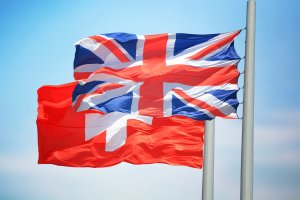- Banking & financial disputes
- Banking Litigation
- Commercial disputes

Longer Reads
Frozen or terminated bank accounts: What can you do?
2 minute read
Published 15 July 2022
Key information
- Specialisms
- Dispute Resolution
- Services
- Banking & financial disputes
- Banking Litigation
- Commercial disputes
As the digital economy continues to expand and ongoing developments in fin-tech send money flying around the world with unprecedent speed and ease, financial institutions are struggling to balance compliance responsibilities with their customer care obligations.
Unfortunately, ordinary customers often get caught in the crossfire and can be left without access to their funds for some considerable time.
Why is your account being closed or frozen?
The reasons why a bank might discontinue its relationship with you and decide to close your account can be myriad, but generally relate to a perceived risk for the institution. This can be fraud risk, credit risk, reputational risk, or some other apparent risk stemming from the bank’s lack of expertise in relation to a particular industry, business or country. A bank may, for example, take a policy decision to stop banking with ship owners if there is a spate of defaults due to piracy.
On the other hand, if your account has been unexpectedly frozen, the most common trigger is generally a concern over fraud or money laundering. Most banks monitor electronic activity using algorithms, which flag suspicious transactions. This can occur when large or unexpected sums are transferred in or out, particularly to and from accounts with links to certain countries that are deemed higher risk.
What can you do if a bank threatens to close your account?
Provided that adequate notice has been given, there may be little that customers can do when a bank decides to close their account.
The banks’ terms and conditions usually give them powers to terminate customer relationships in a very wide array of circumstances that rarely (if ever) require any wrongdoing on the customer’s part. However, the Financial Ombudsman has made it clear that it requires banks to give reasonable notice of at least 30 days if they intend to close a personal bank account. This is intended to allow the customer sufficient time to make alternative banking arrangements and it is recognised that a longer notice period may be appropriate for business customers.
The reasonableness of bank’s conduct can always be measured against its customer care obligations in the Financial Conduct Authority’s Banking Conduct of Businesses sourcebook (often referred to as “BCOBS”). Under BCOBS, a banking institution must in all circumstances pay due regard to the interests of its customers, treat them fairly and communicate information to them in a clear manner. Particular care must be given when dealing with a customer who might be in financial difficulty. The closure of an operational bank account on very short notice could, for example, have a severe impact on an organisation’s ability to continue trading.
If you consider a bank to have acted unreasonably, you can ask the Financial Ombudsman to review its decision. The Financial Ombudsman can in turn order that you be compensated. It is also worth mentioning that if a bank’s decision to close your account is expected to have particularly adverse consequences (which could not be compensated by an award of damages), then it may be possible to apply for a court injunction restraining the bank from doing so.
What can you do if a bank freezes your account indefinitely?
Sometimes, a bank might freeze a bank account without giving any notice, which is generally permitted under their terms and conditions in “exceptional circumstances”. It will usually occur where the bank suspects that fraud or money laundering may be occurring or is imminent.
When a bank suspects money laundering, it has a regulatory duty to freeze the account and report the matter to the National Crime Agency (“NCA”) by filing a Suspicious Activity Report (“SAR”). Failure to do so can result in prosecution, so banks generally err on the side of caution.
Once an SAR has been filed, the NCA effectively has 38 working days to investigate, during which period the bank and the NCA are prohibited from disclosing anything about why the account has been frozen, because it is a criminal offence to “tip somebody off” about the existence of an SAR.
Whilst that process plays out, the bank can legally refuse to execute customer instructions, so there may be little that you can do for the first 38 days. However, even where an NCA investigation concludes much earlier, the bank’s internal processes can lag, resulting in accounts remaining frozen for extended periods of time. In those circumstances, keeping pressure on the bank can yield faster results.
If you find yourself in a position where an account has been frozen without notice, it is advisable to assume that this may be due to concerns around fraud or money laundering. You should provide the bank with as much information as possible to comfort them that your account is not being used for any such purpose. Depending on the circumstances, if an institution then maintains a block on your account , there may be further steps which can be taken, such as applying to Court for an injunction, making a complaint to the Financial Ombudsman, or commencing proceedings to recover any losses that you have suffered as a result of the bank’s actions.
Related content
Longer Reads
Frozen or terminated bank accounts: What can you do?
Published 15 July 2022
Associated sectors / services
As the digital economy continues to expand and ongoing developments in fin-tech send money flying around the world with unprecedent speed and ease, financial institutions are struggling to balance compliance responsibilities with their customer care obligations.
Unfortunately, ordinary customers often get caught in the crossfire and can be left without access to their funds for some considerable time.
Why is your account being closed or frozen?
The reasons why a bank might discontinue its relationship with you and decide to close your account can be myriad, but generally relate to a perceived risk for the institution. This can be fraud risk, credit risk, reputational risk, or some other apparent risk stemming from the bank’s lack of expertise in relation to a particular industry, business or country. A bank may, for example, take a policy decision to stop banking with ship owners if there is a spate of defaults due to piracy.
On the other hand, if your account has been unexpectedly frozen, the most common trigger is generally a concern over fraud or money laundering. Most banks monitor electronic activity using algorithms, which flag suspicious transactions. This can occur when large or unexpected sums are transferred in or out, particularly to and from accounts with links to certain countries that are deemed higher risk.
What can you do if a bank threatens to close your account?
Provided that adequate notice has been given, there may be little that customers can do when a bank decides to close their account.
The banks’ terms and conditions usually give them powers to terminate customer relationships in a very wide array of circumstances that rarely (if ever) require any wrongdoing on the customer’s part. However, the Financial Ombudsman has made it clear that it requires banks to give reasonable notice of at least 30 days if they intend to close a personal bank account. This is intended to allow the customer sufficient time to make alternative banking arrangements and it is recognised that a longer notice period may be appropriate for business customers.
The reasonableness of bank’s conduct can always be measured against its customer care obligations in the Financial Conduct Authority’s Banking Conduct of Businesses sourcebook (often referred to as “BCOBS”). Under BCOBS, a banking institution must in all circumstances pay due regard to the interests of its customers, treat them fairly and communicate information to them in a clear manner. Particular care must be given when dealing with a customer who might be in financial difficulty. The closure of an operational bank account on very short notice could, for example, have a severe impact on an organisation’s ability to continue trading.
If you consider a bank to have acted unreasonably, you can ask the Financial Ombudsman to review its decision. The Financial Ombudsman can in turn order that you be compensated. It is also worth mentioning that if a bank’s decision to close your account is expected to have particularly adverse consequences (which could not be compensated by an award of damages), then it may be possible to apply for a court injunction restraining the bank from doing so.
What can you do if a bank freezes your account indefinitely?
Sometimes, a bank might freeze a bank account without giving any notice, which is generally permitted under their terms and conditions in “exceptional circumstances”. It will usually occur where the bank suspects that fraud or money laundering may be occurring or is imminent.
When a bank suspects money laundering, it has a regulatory duty to freeze the account and report the matter to the National Crime Agency (“NCA”) by filing a Suspicious Activity Report (“SAR”). Failure to do so can result in prosecution, so banks generally err on the side of caution.
Once an SAR has been filed, the NCA effectively has 38 working days to investigate, during which period the bank and the NCA are prohibited from disclosing anything about why the account has been frozen, because it is a criminal offence to “tip somebody off” about the existence of an SAR.
Whilst that process plays out, the bank can legally refuse to execute customer instructions, so there may be little that you can do for the first 38 days. However, even where an NCA investigation concludes much earlier, the bank’s internal processes can lag, resulting in accounts remaining frozen for extended periods of time. In those circumstances, keeping pressure on the bank can yield faster results.
If you find yourself in a position where an account has been frozen without notice, it is advisable to assume that this may be due to concerns around fraud or money laundering. You should provide the bank with as much information as possible to comfort them that your account is not being used for any such purpose. Depending on the circumstances, if an institution then maintains a block on your account , there may be further steps which can be taken, such as applying to Court for an injunction, making a complaint to the Financial Ombudsman, or commencing proceedings to recover any losses that you have suffered as a result of the bank’s actions.
Associated sectors / services
- Banking & financial disputes
- Banking Litigation
- Commercial disputes
Need some more information? Make an enquiry below.
Enjoy reading our articles? why not subscribe to notifications so you’ll never miss one?
Subscribe to our articlesMessage us on WhatsApp (calling not available)
Please note that Collyer Bristow provides this service during office hours for general information and enquiries only and that no legal or other professional advice will be provided over the WhatsApp platform. Please also note that if you choose to use this platform your personal data is likely to be processed outside the UK and EEA, including in the US. Appropriate legal or other professional opinion should be taken before taking or omitting to take any action in respect of any specific problem. Collyer Bristow LLP accepts no liability for any loss or damage which may arise from reliance on information provided. All information will be deleted immediately upon completion of a conversation.
Close











































































